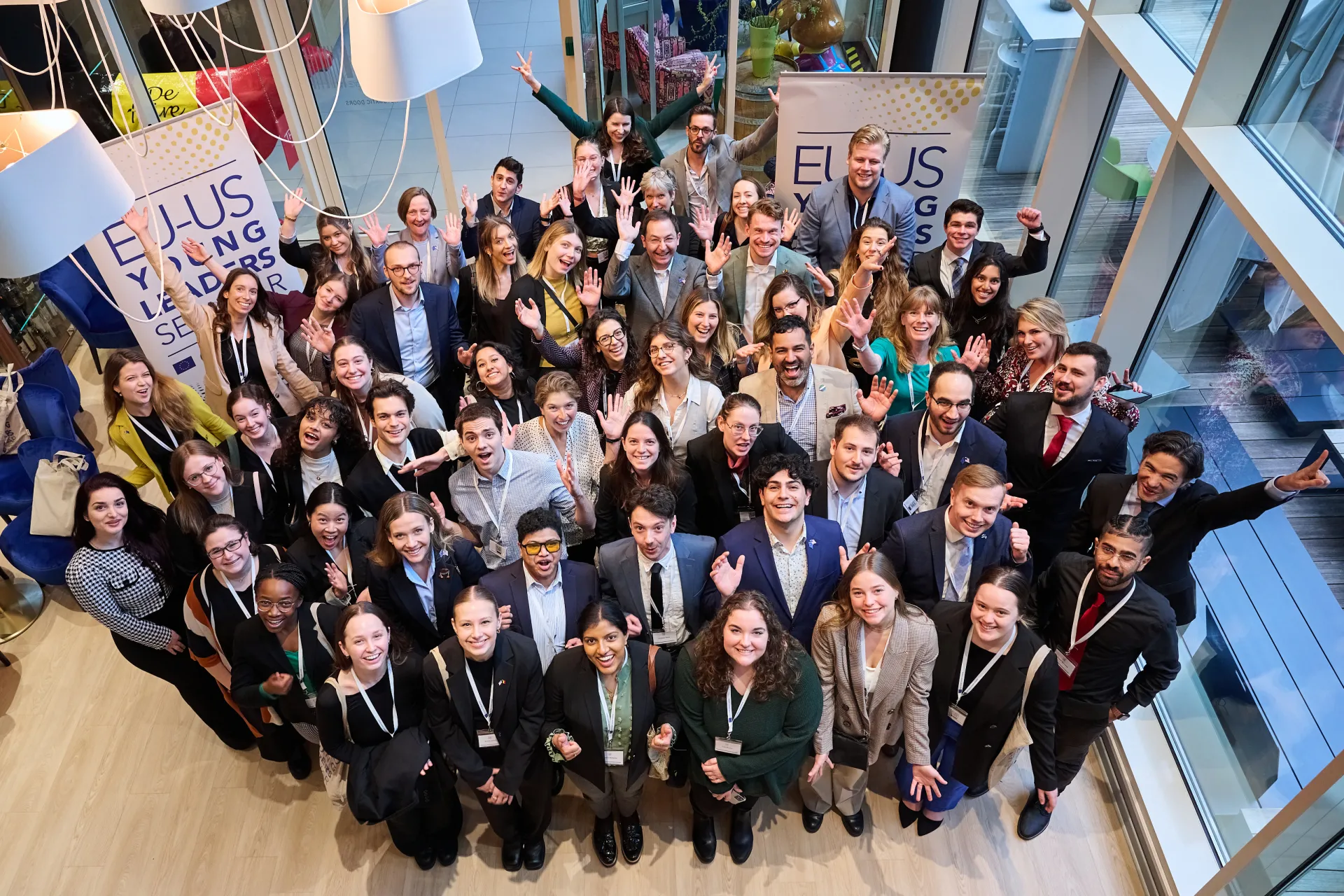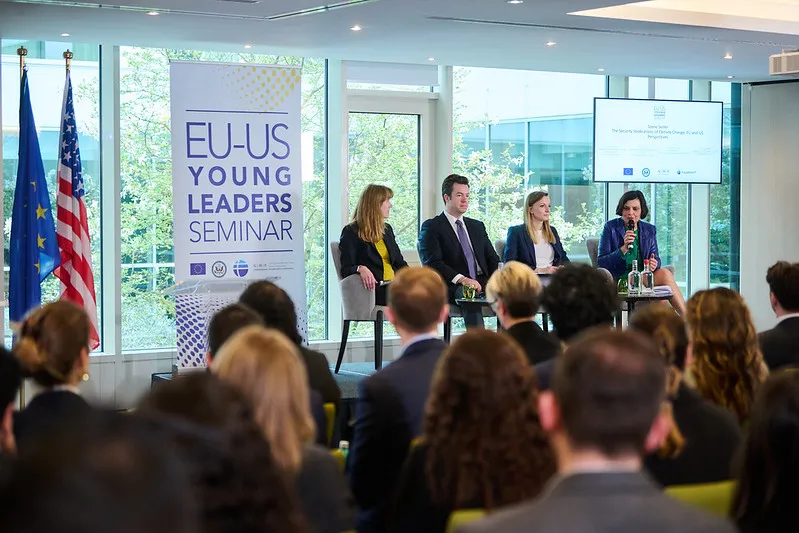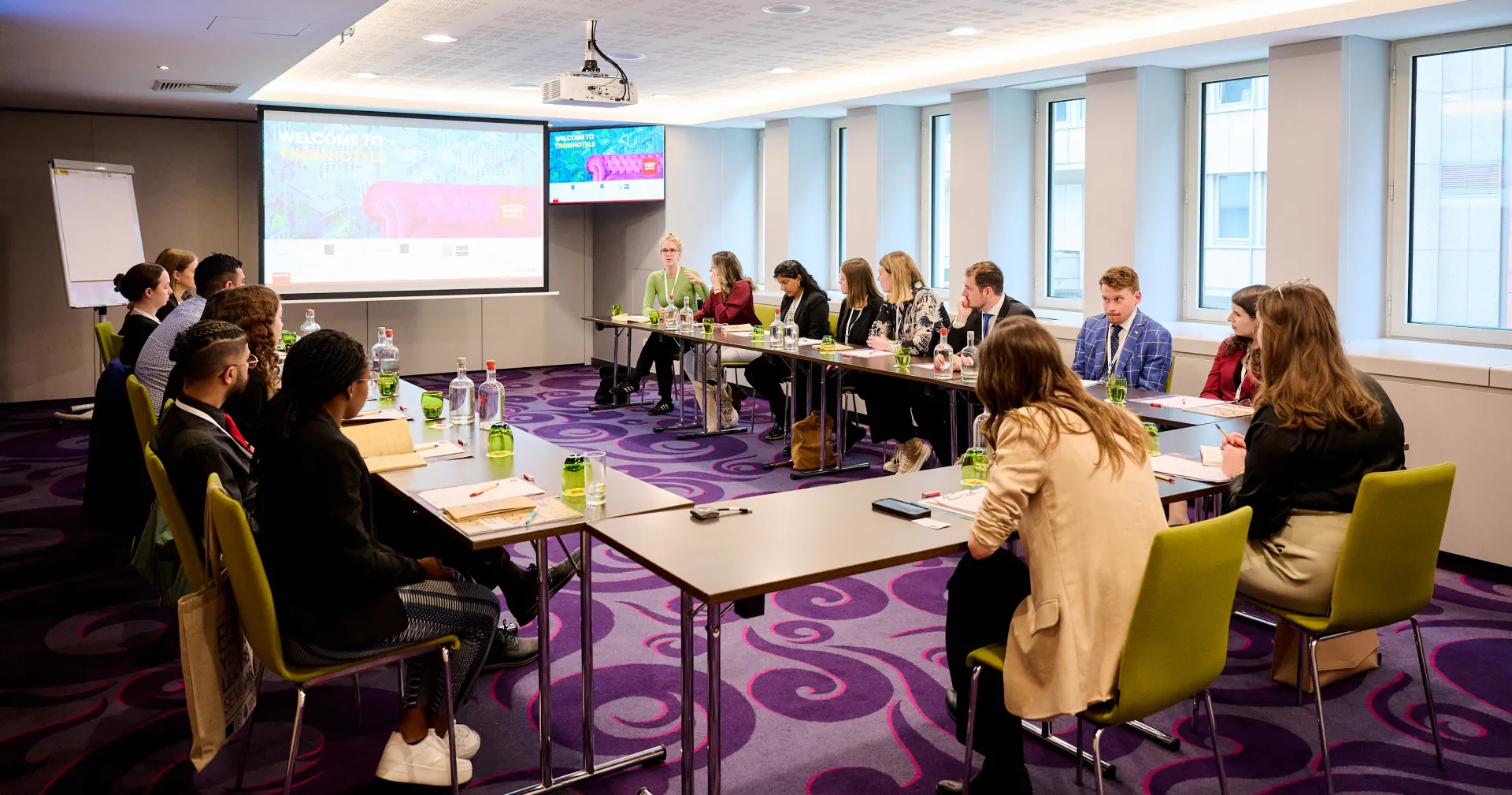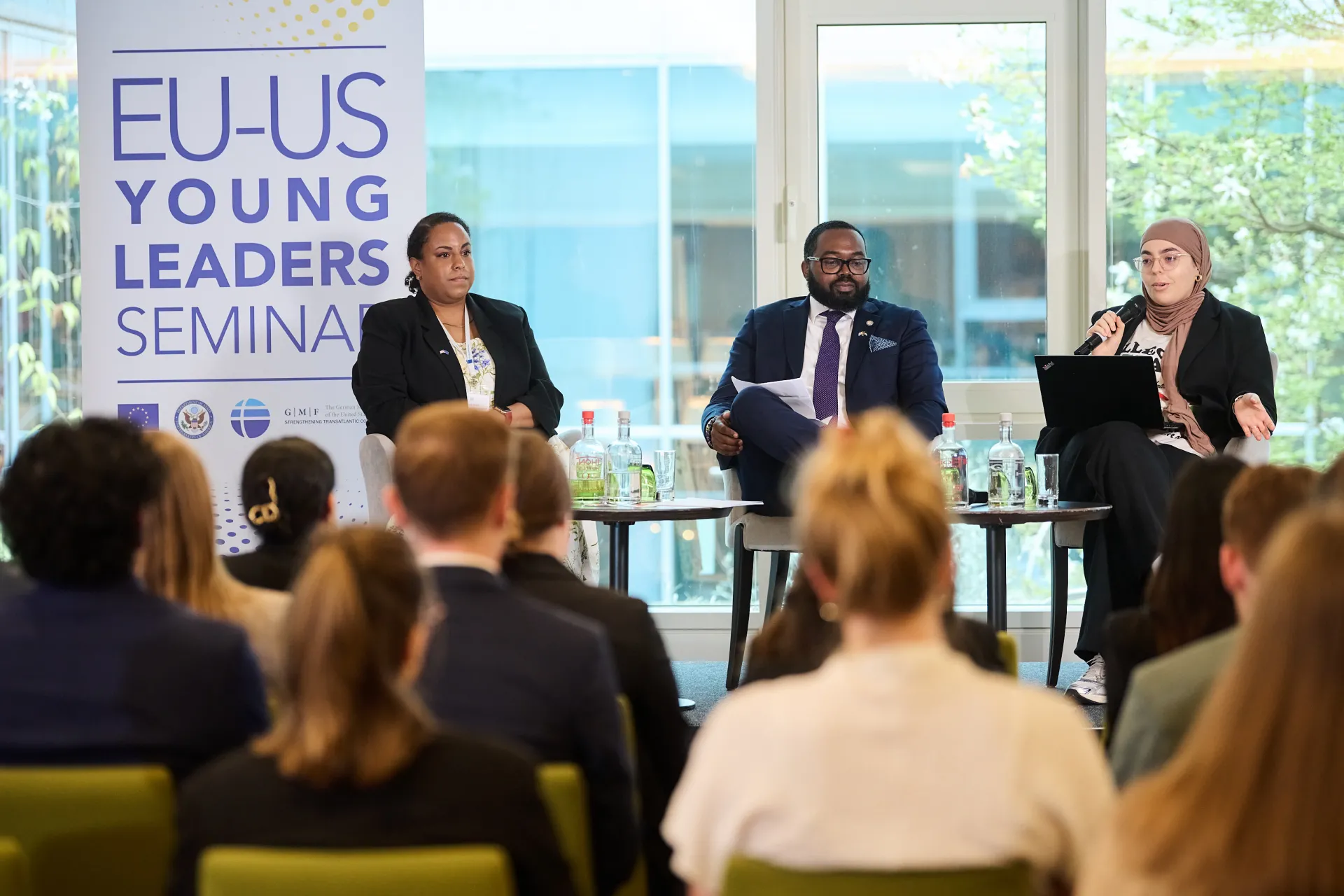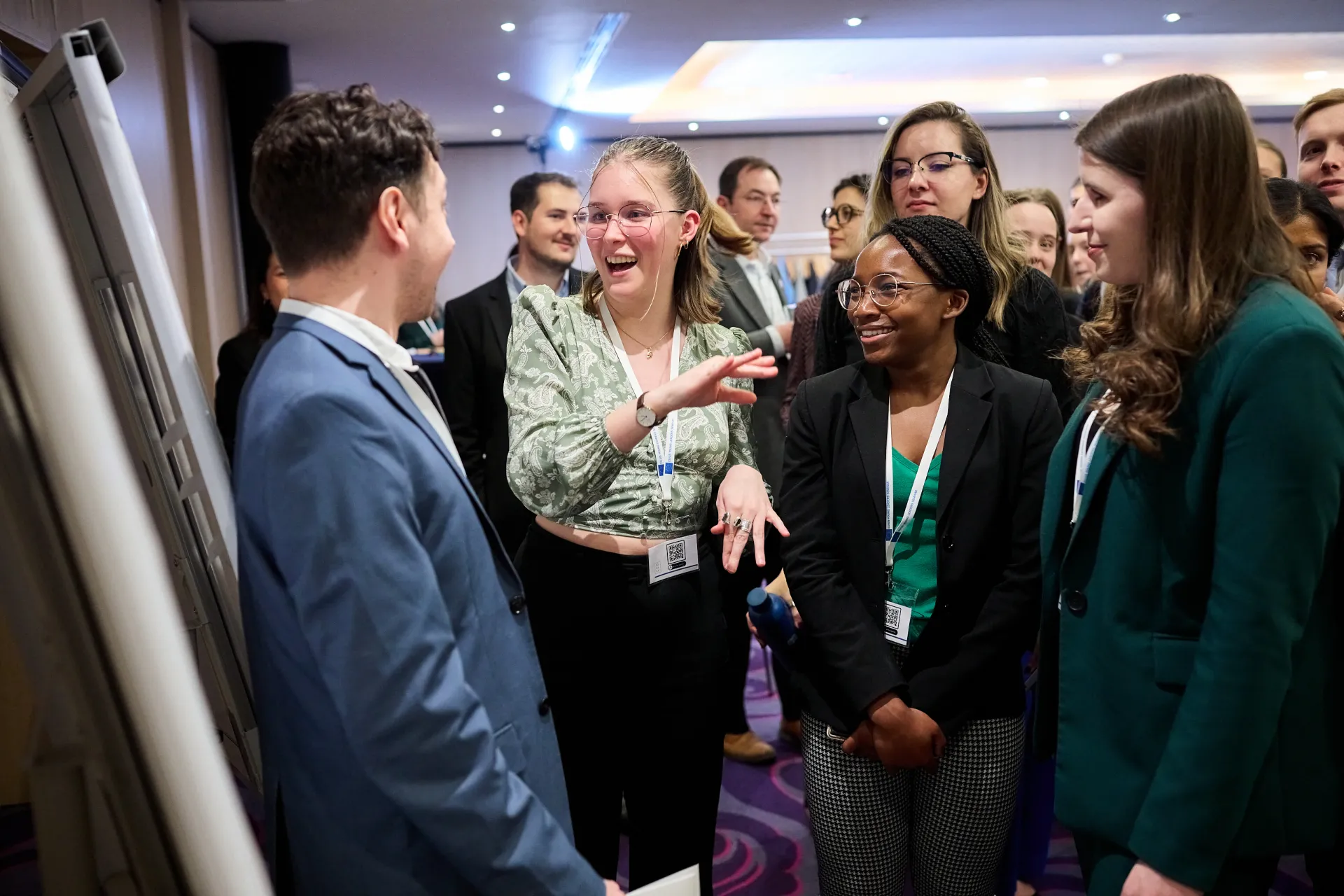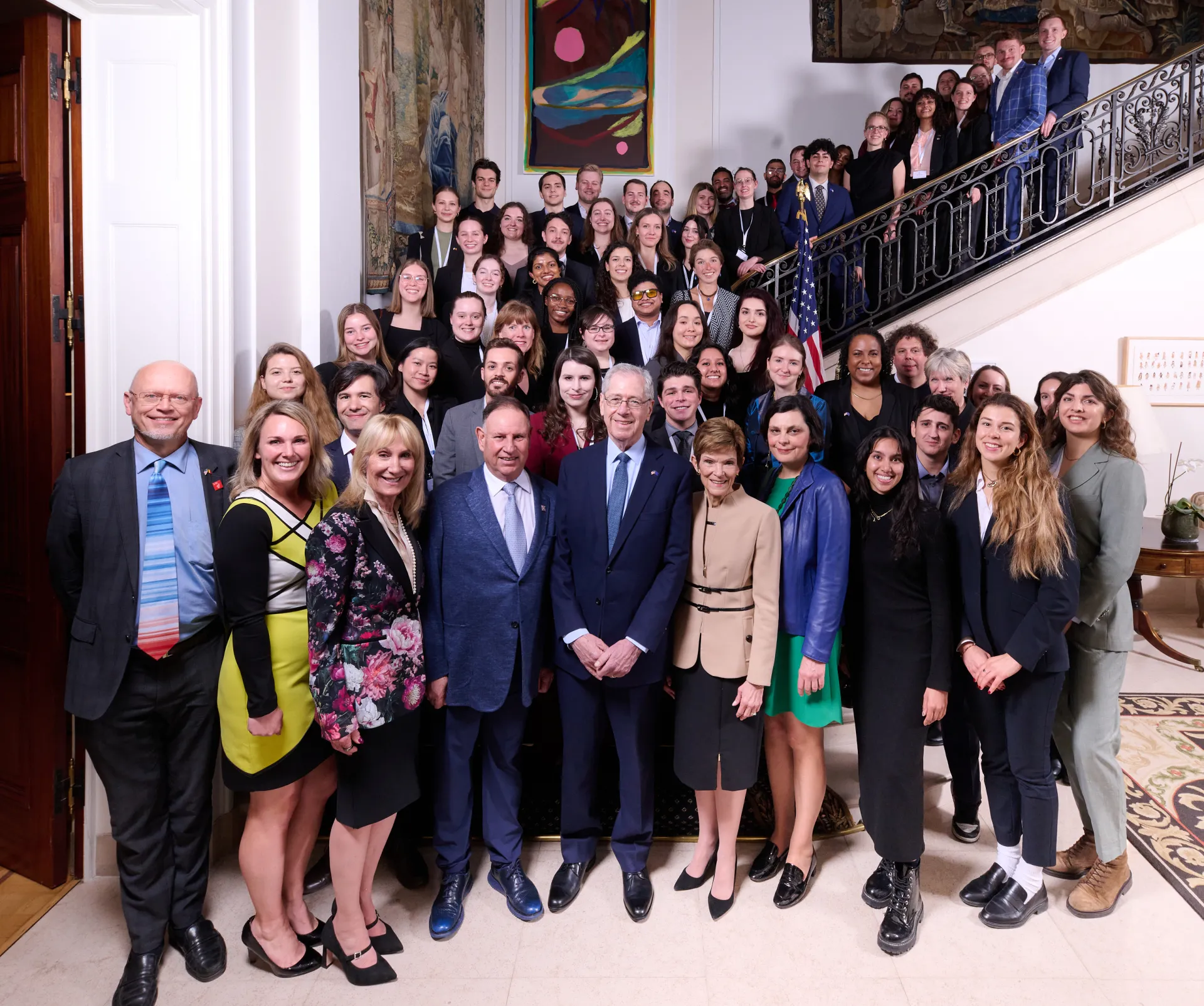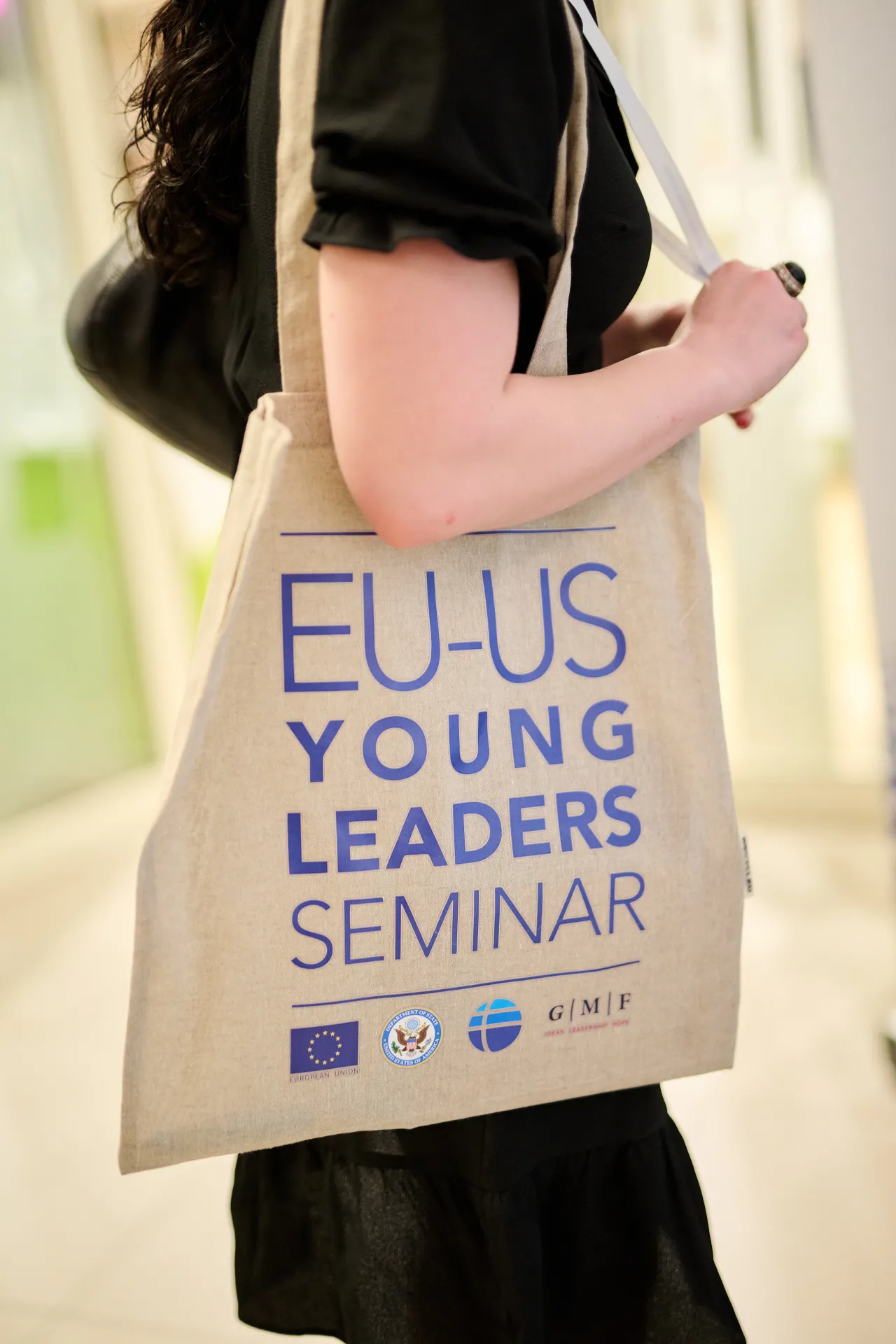2024 EU-US Young Leaders Seminar
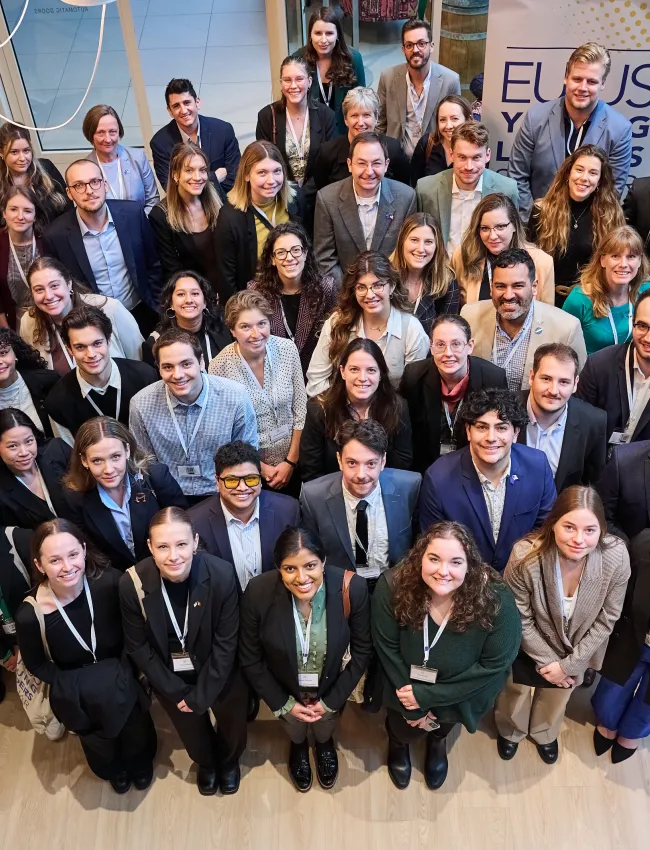
7:00pm - 6:59pm EDT
12:00am - 11:59pm CET
1:00am - 12:59am EET
About this event
EU-US Young Leaders Seminar on the Security Implications of Climate Change
BRUSSELS, Belgium – From March 20-23, the seventh edition of the EU-U.S. Young Leaders Seminar (YLS) gathered 50 post-graduates in Brussels for several days of panel discussions, participant-led group work, and an advocacy workshop. The YLS seeks to strengthen the bond between young leaders from the EU and the United States, promoting a robust transatlantic relationship.
The seminar is a unique opportunity for young leaders from across the European Union and United States to discuss some of the most important issues facing both sides of the Atlantic. The young leaders represented diverse backgrounds: Some with expertise in climate change, others in engineering, history, business, and other fields.
With global warming events and escalating armed conflicts worldwide, the theme "The Security Implications of Climate Change" could not have been more pertinent. Opening keynote speakers included Normunds Popens (Deputy Director-General, DG EAC), Tony Agotha (Special Envoy for Climate and Environment, EEAS), and Greg Pollock (Principal Director for Arctic and Global Resilience, U.S. Department of Defense). Each emphasised the importance of leadership and for a new generation of young leaders to tackle the threats posed by climate change to global security.
The seven discussion panels started with a scene setter opened by Caroline Edery (Head of Unit, DG CLIMA), Greg Pollock, and Katarina Kertysova (Policy Officer Climate and Energy Security Section, NATO). Joanna Darmanin (Head of Unit on Humanitarian Aid Thematic Policies, DG ECHO) and Benjamin Pohl (Head of Programme Climate Diplomacy and Security, Adelphi) presented on how climate change will exacerbate demands on the humanitarian aid sector. Shawn Milrad (Associate Professor, Meteorology, Embry-Riddle Aeronautical University) provided a sobering account of current global warming trends and their direct environmental consequences.
Christoph Deuster (Project Officer at the European Commission’s Joint Research Centre) Tomas Ernst (Displacement and Development Advisor, International Organisation for Migration), and Kristin Alderman (Deputy Representative of the Population, Refugees, and Migration Bureau at the U.S. Mission to the EU) addressed the downstream security consequences of climate change on the involuntary displacement of people. They all conduct research on the implications of internal displacement and, in the case of the IoM, deal with the practical consequences of climate refugees and migration.
Robb Butler (Director of the Division for Communicable Diseases, Environment and Health, World Health Organisation) and Anne Stauffer (Deputy Director, Strategic Lead, Health and Environment Alliance) each presented their work on adapting to and mitigating multiple health emergencies, both chronic and acute. Both emphasized the need for universal outreach, as well as engaging with governments and civil society.
The second day of the seminar invited discussion on potential innovations. “What can be done, where, and by whom?” by Elena Visnar Malinovska (Head of Unit, DG CLIMA), together with Jean-Pascal van Ypersele (Chair, Energy and Climate Working Group, Federal Council for Sustainable Development), advanced the case for speeding up adaptation strategies.
Marc Barnett (Political Officer at the U.S. Mission to NATO) and Linsey Cottrell (Environmental Policy Officer, Conflict and Environmental Observatory) talked about military efforts to reduce and advocate for further reductions of their environmental footprint.
The discussion panels concluded with Swedish Member of Parliament Momodou Malcolm Jallow and Magda Boulabiza (Policy and Advocacy Advisor, Climate and Economic Justice at the European Network Against Racism) speaking on climate justice and the risk that people who have had minimal impact on climate change will disproportionately bear.
The seminar concluded with a training session on developing campaign narratives led by Fotis Filippou from Moblab Collective. Participants worked in groups to create their “Story of Change” and learn about the “Power of a Simple Message.”
During their closing remarks, Brian Glynn (Managing Director of the Americas, EEAS) and Aroosha Rana (Cultural Affairs Officer, U.S. Mission to the European Union) encouraged participants to carry the torch of leadership forward in the transatlantic partnership.
For more information about the project, click here!
EU-US Young Leaders Seminar 2024
Photo Credits: PRYZM Photography. For more photos of the 2024 YLS, click here!
The EU-U.S. Young Leaders Seminar is co-funded by the European Commission and the U.S. Department of State’s Bureau of Educational and Cultural Affairs, and implemented by GMF with the support of the Fulbright Commission in Brussels. Since its inception, over 250 alumni of EU and U.S.-funded educational exchange programs have participated in the Young Leaders Seminar.

